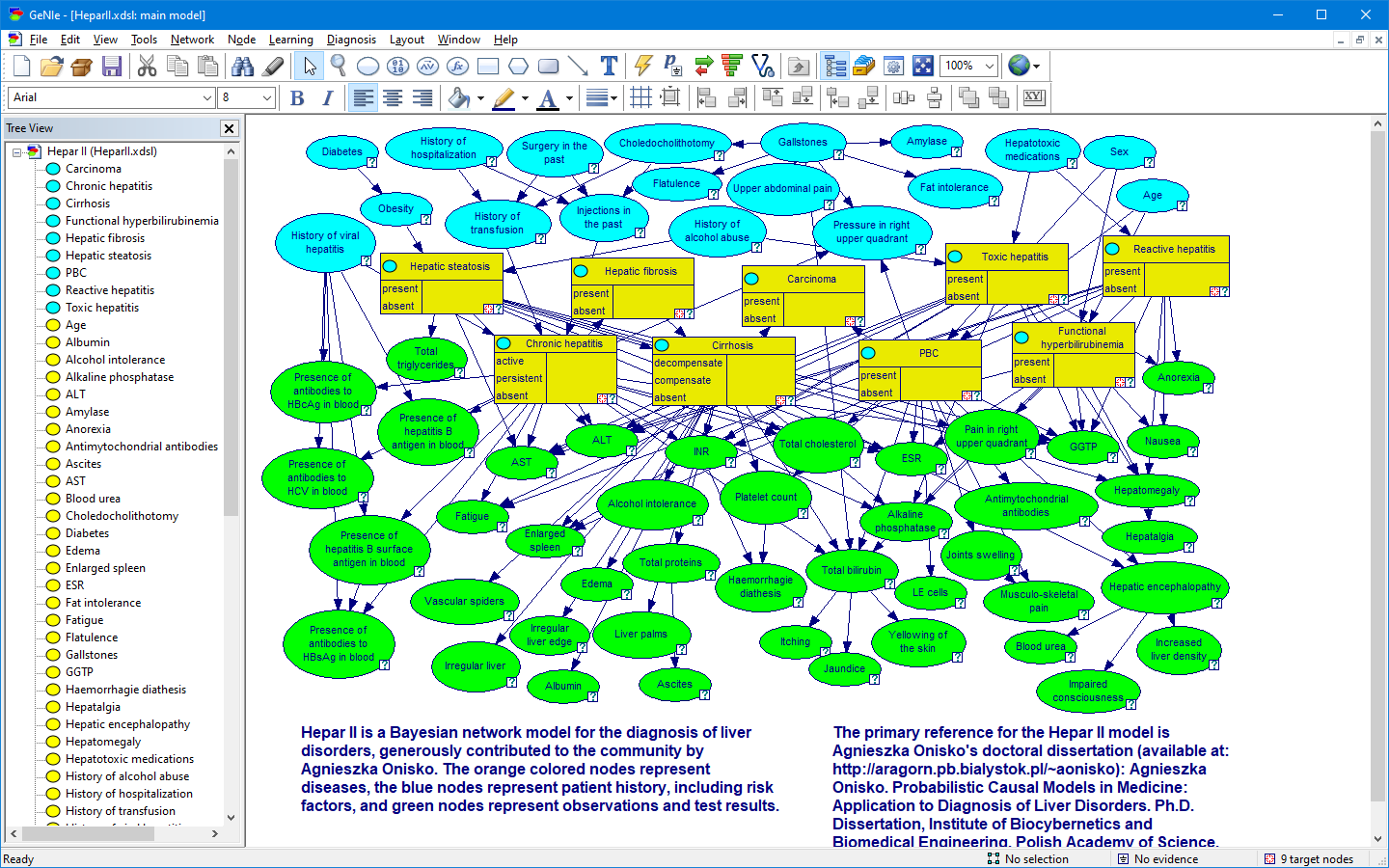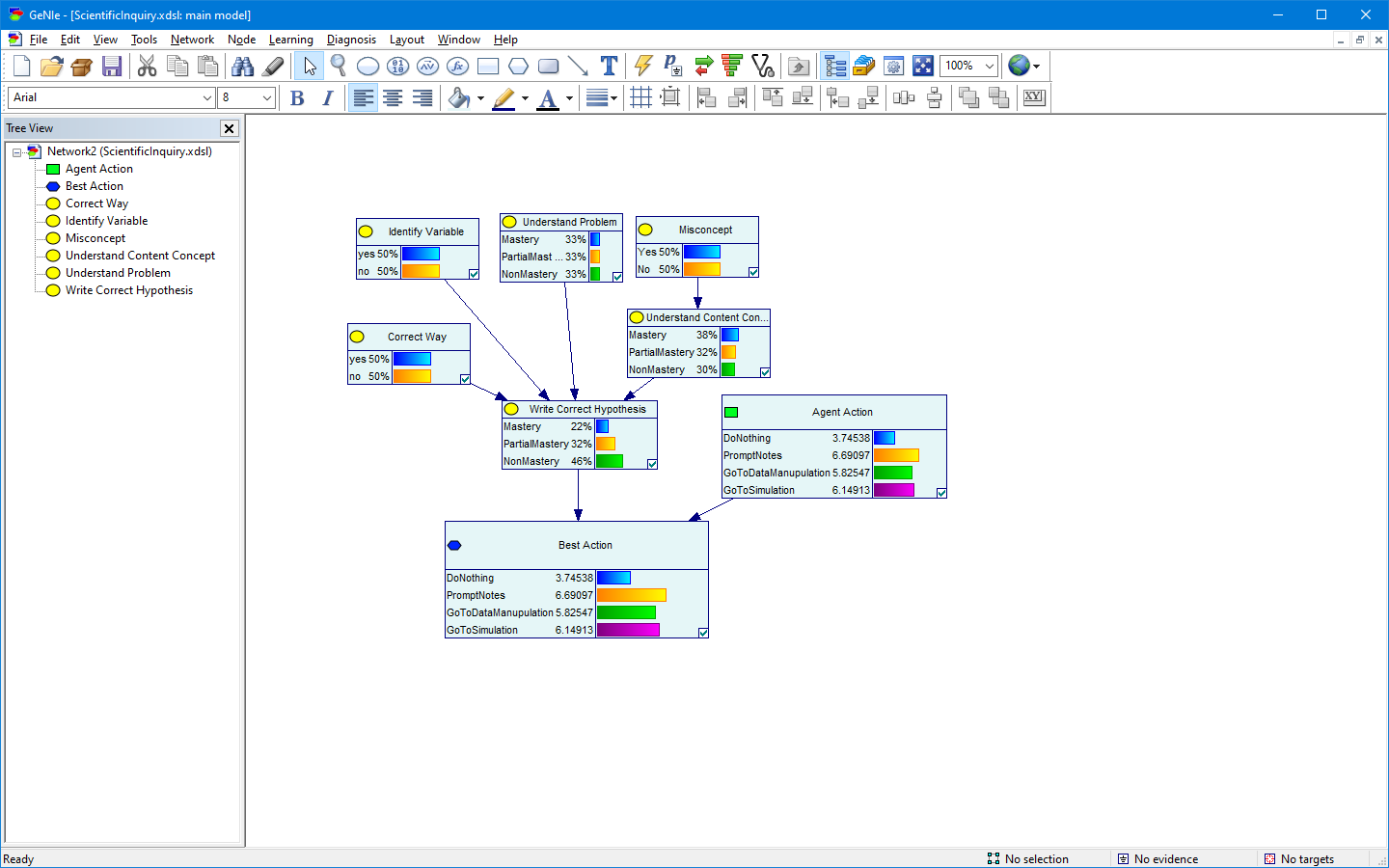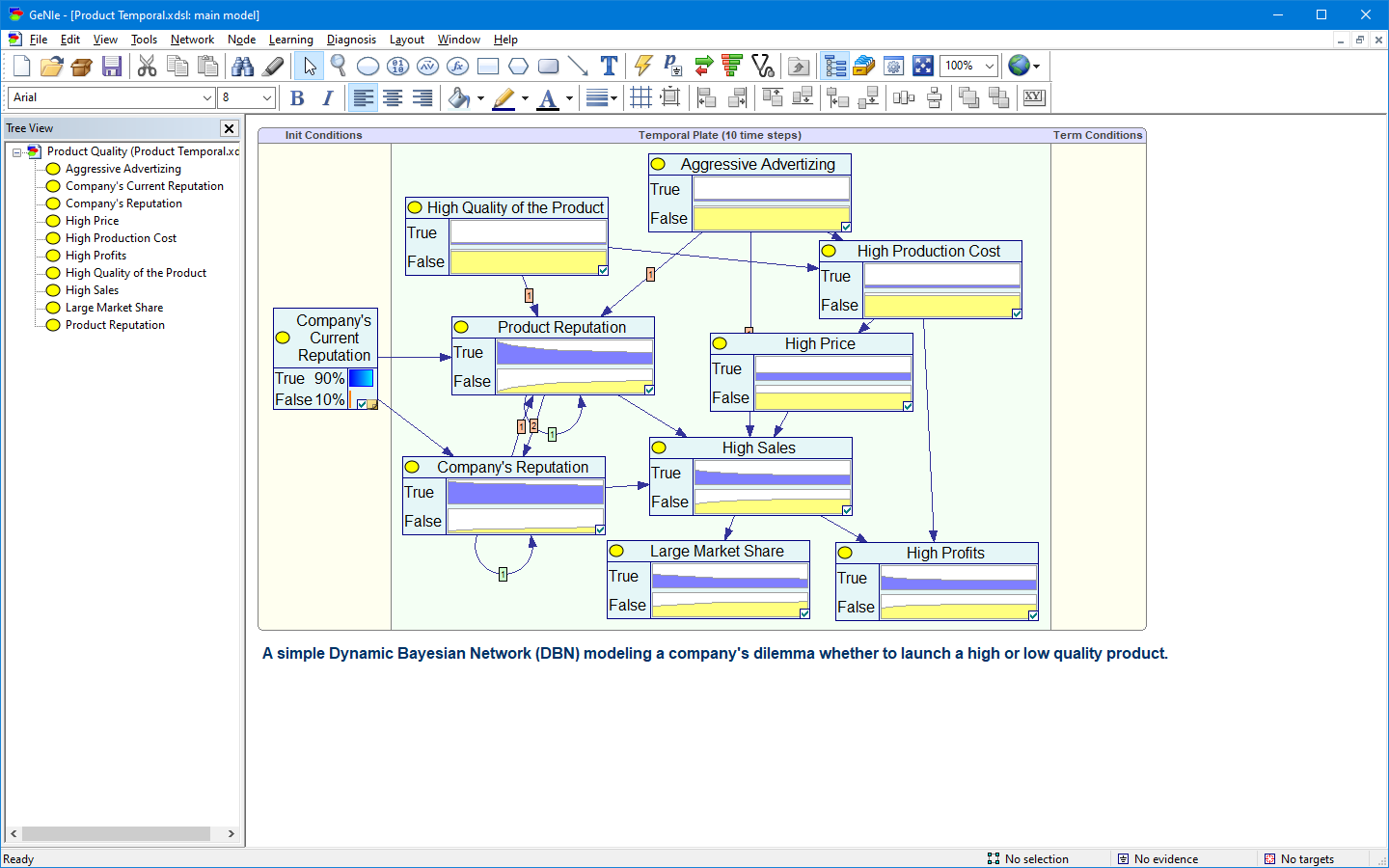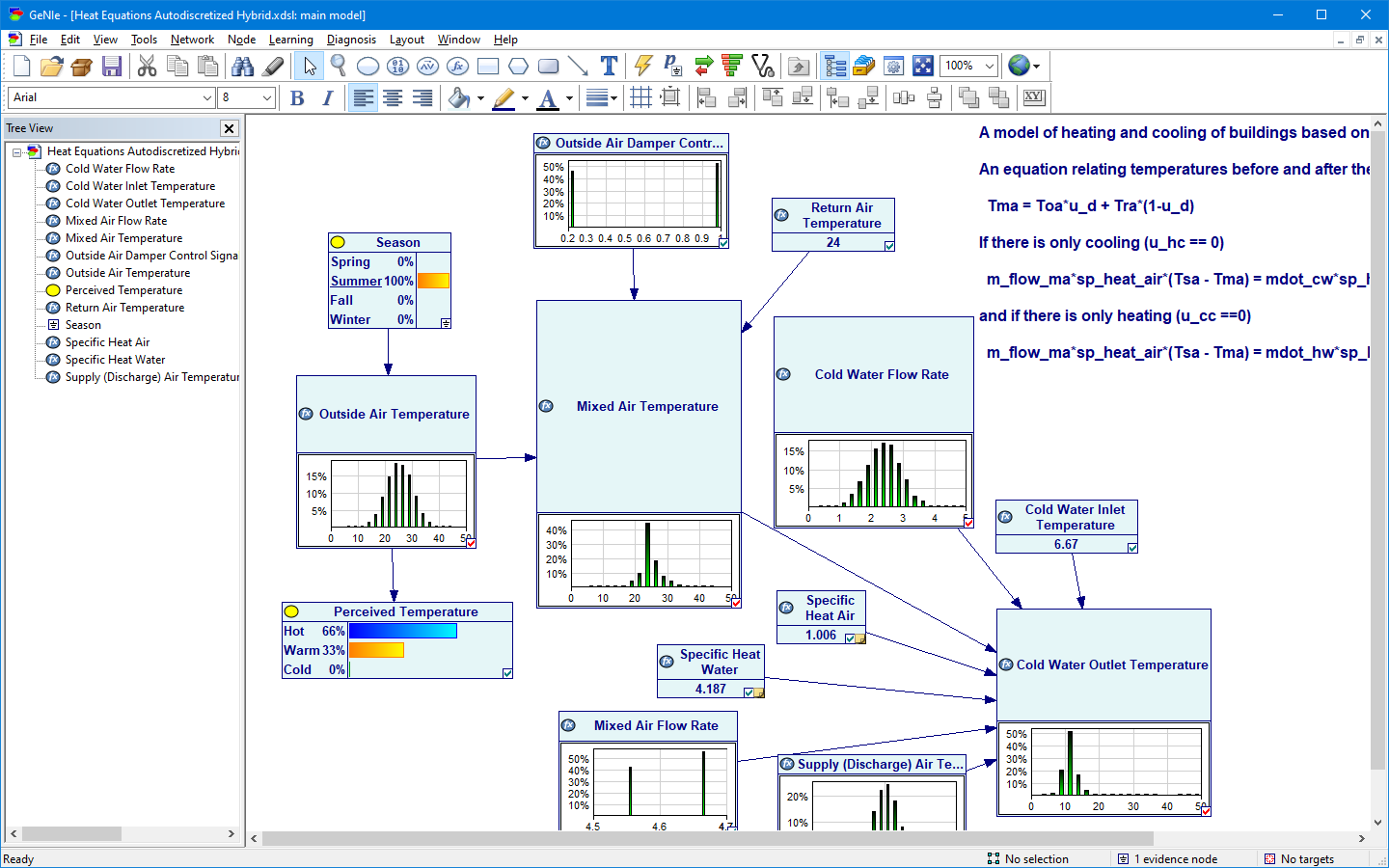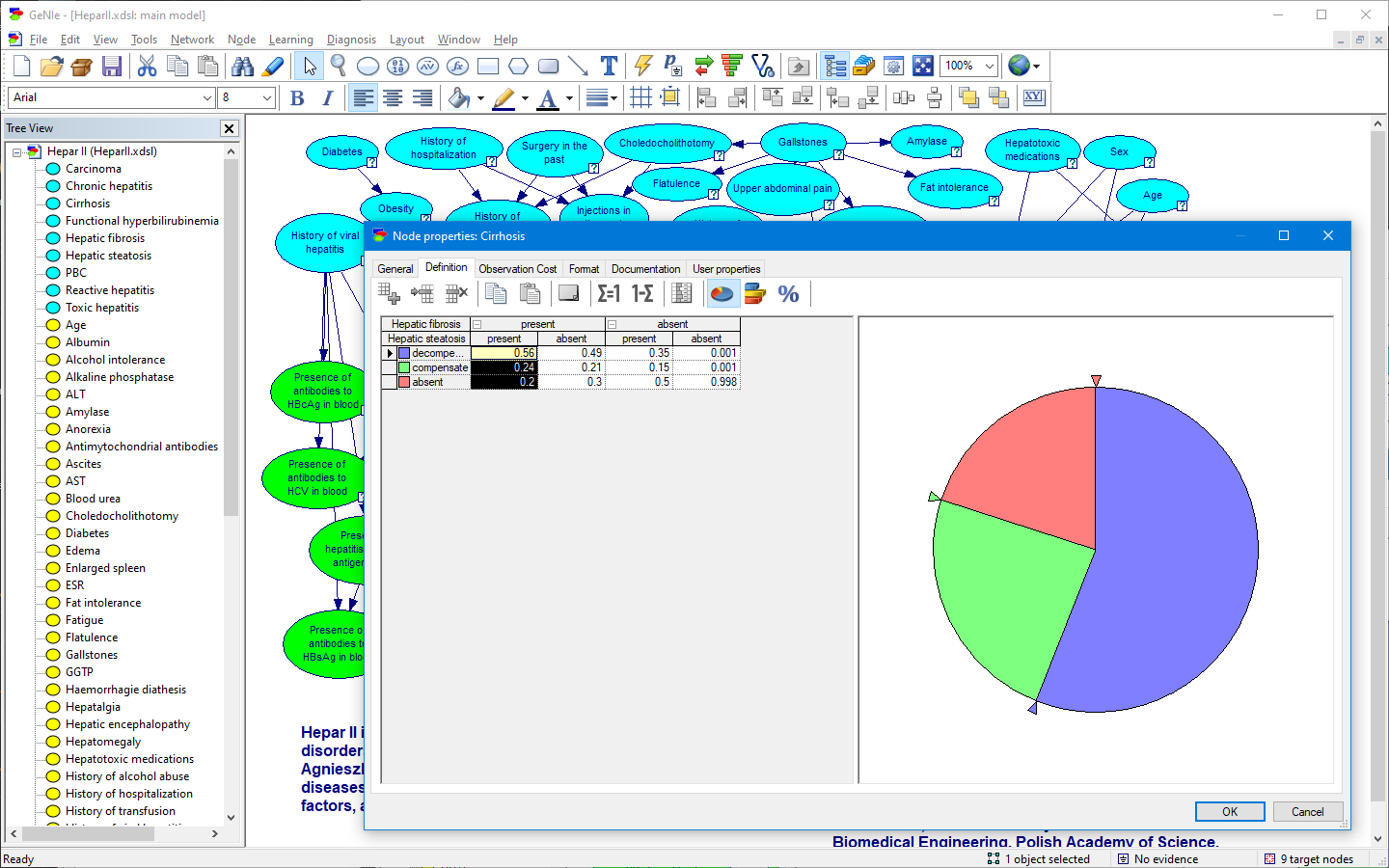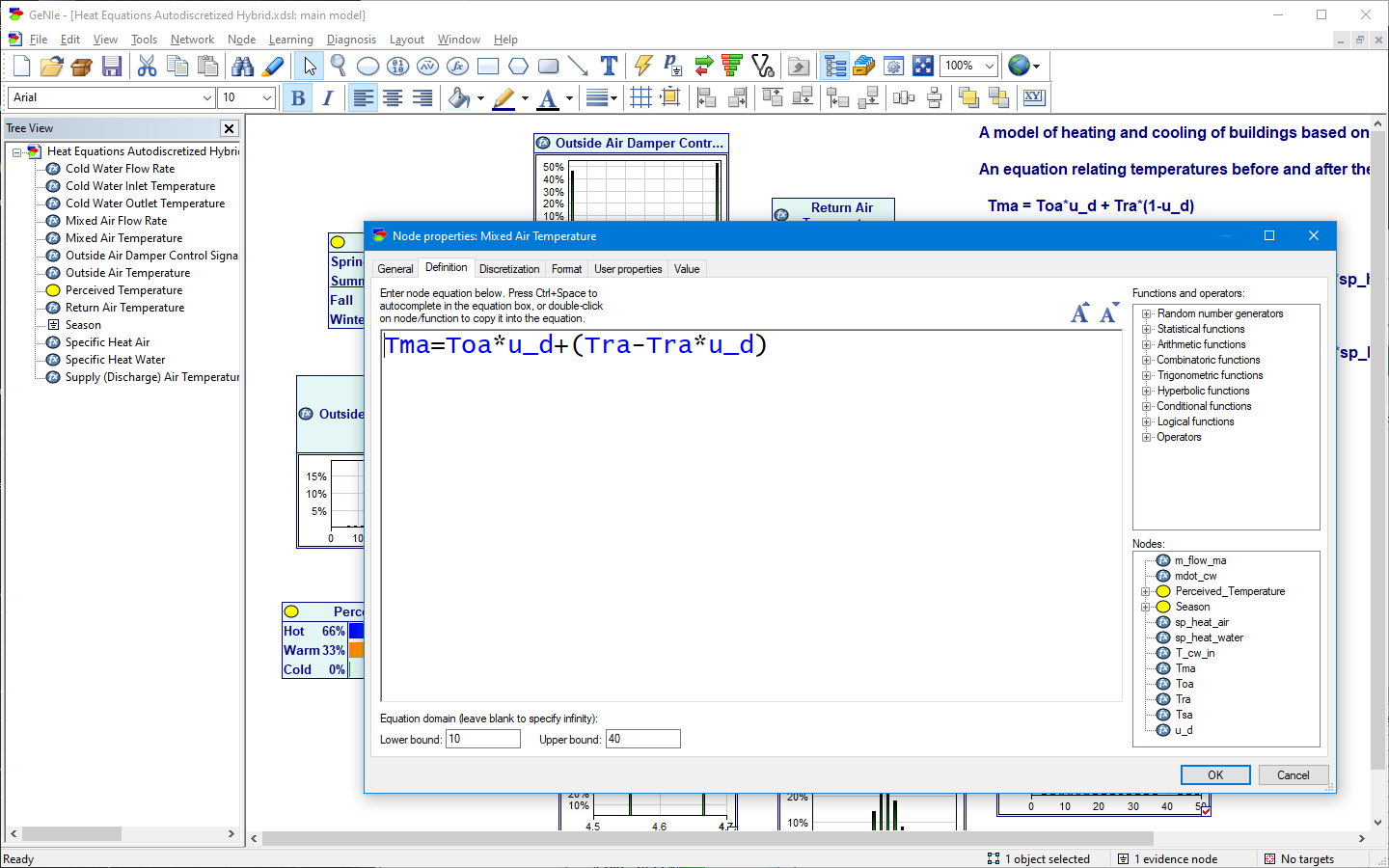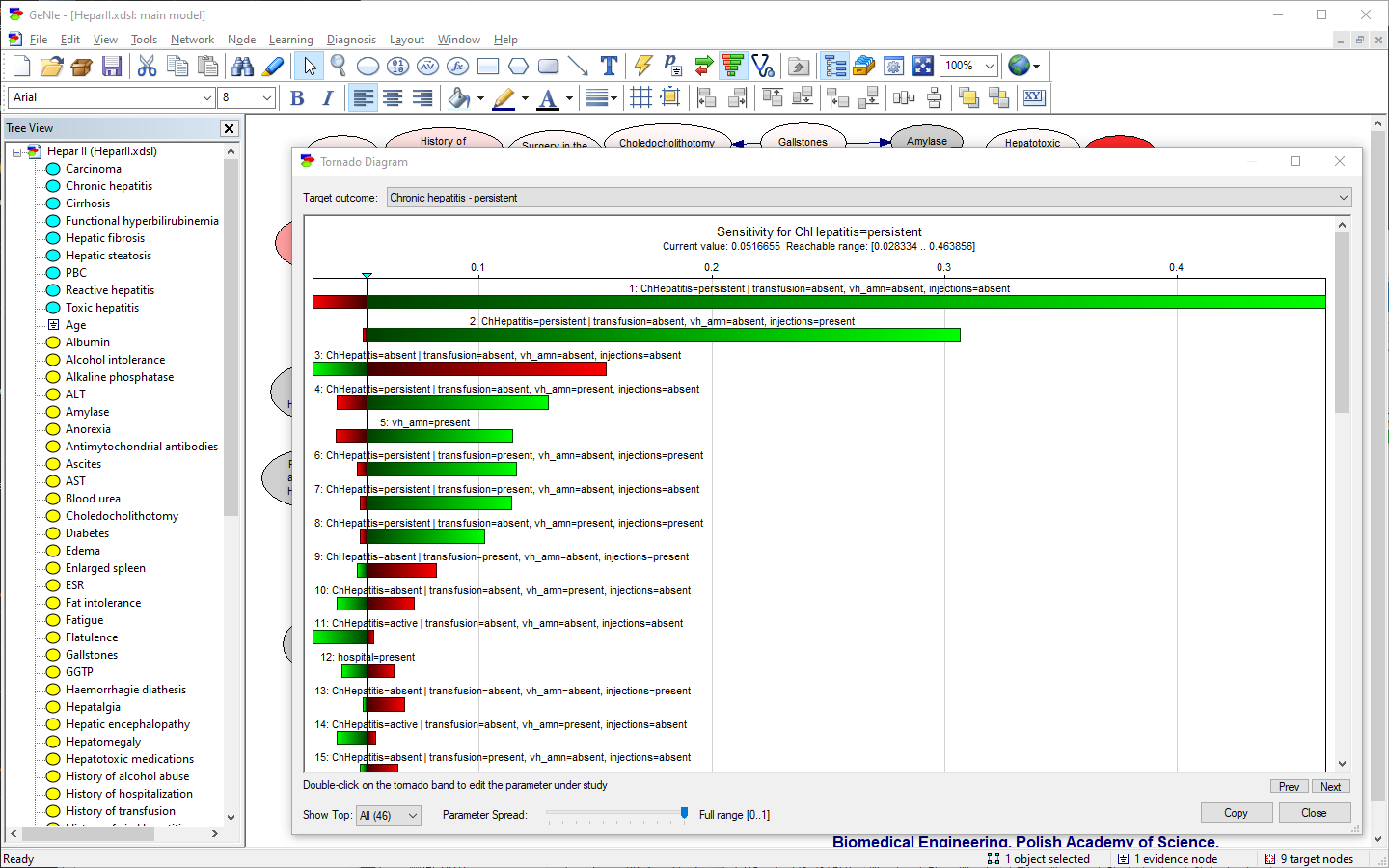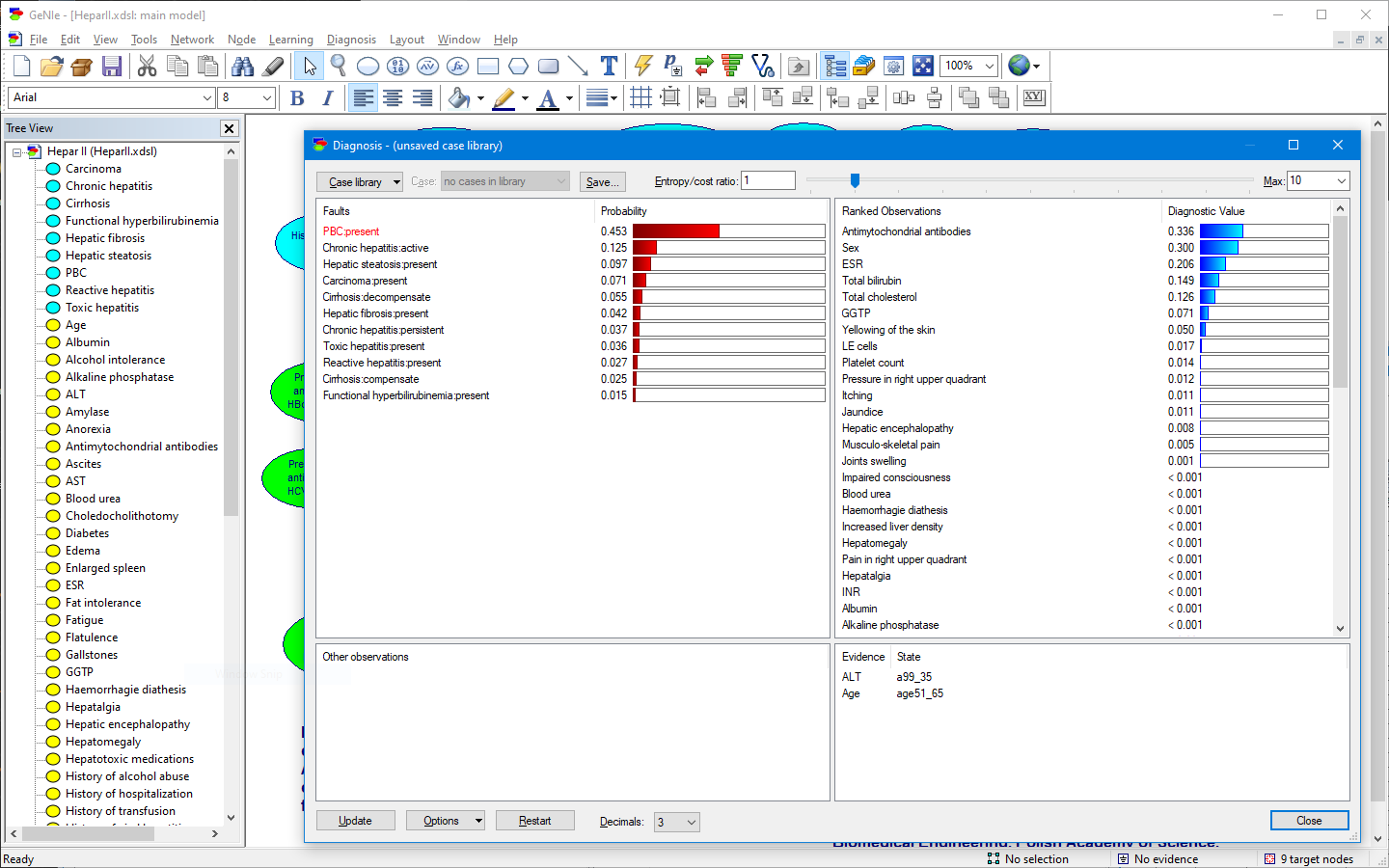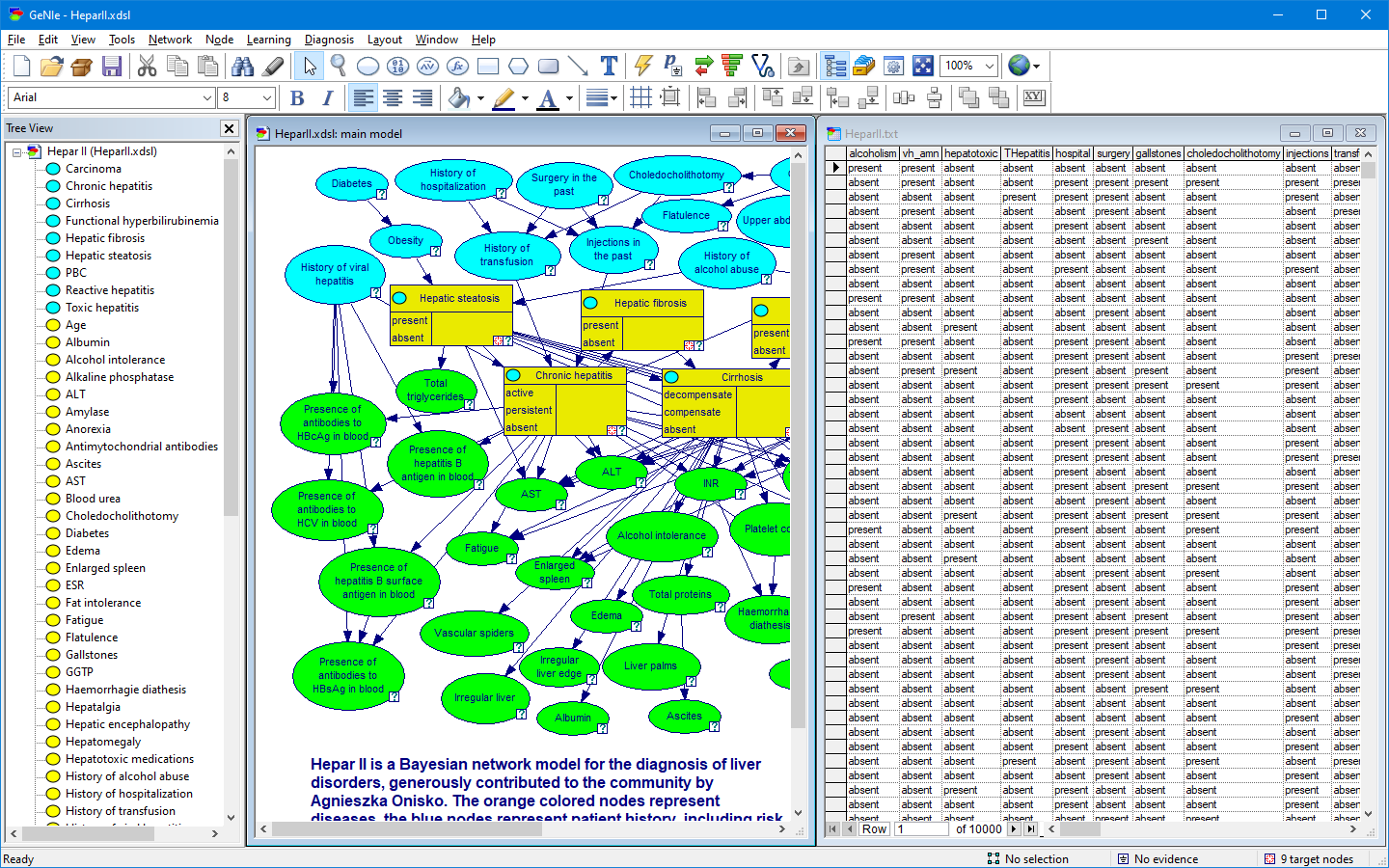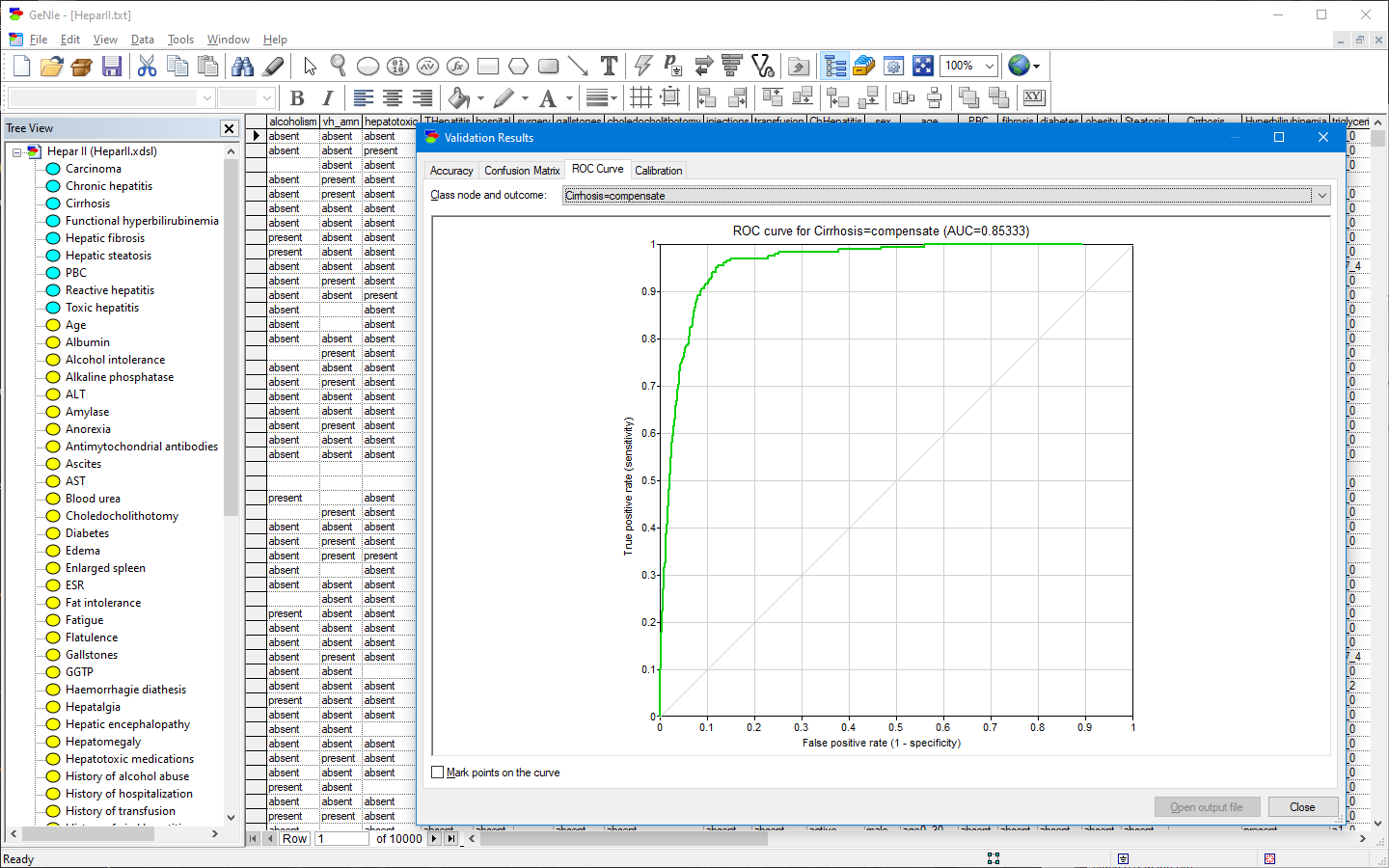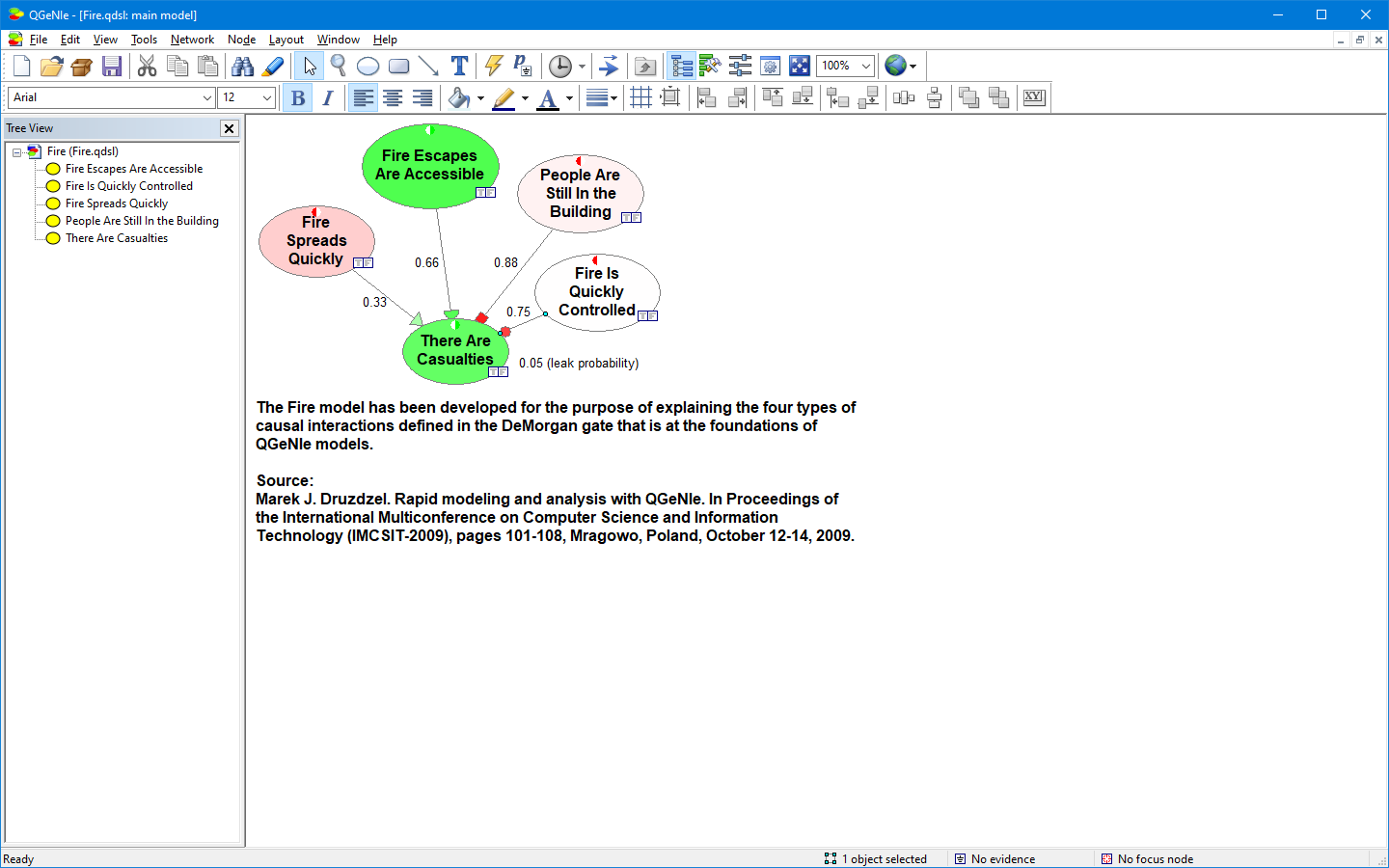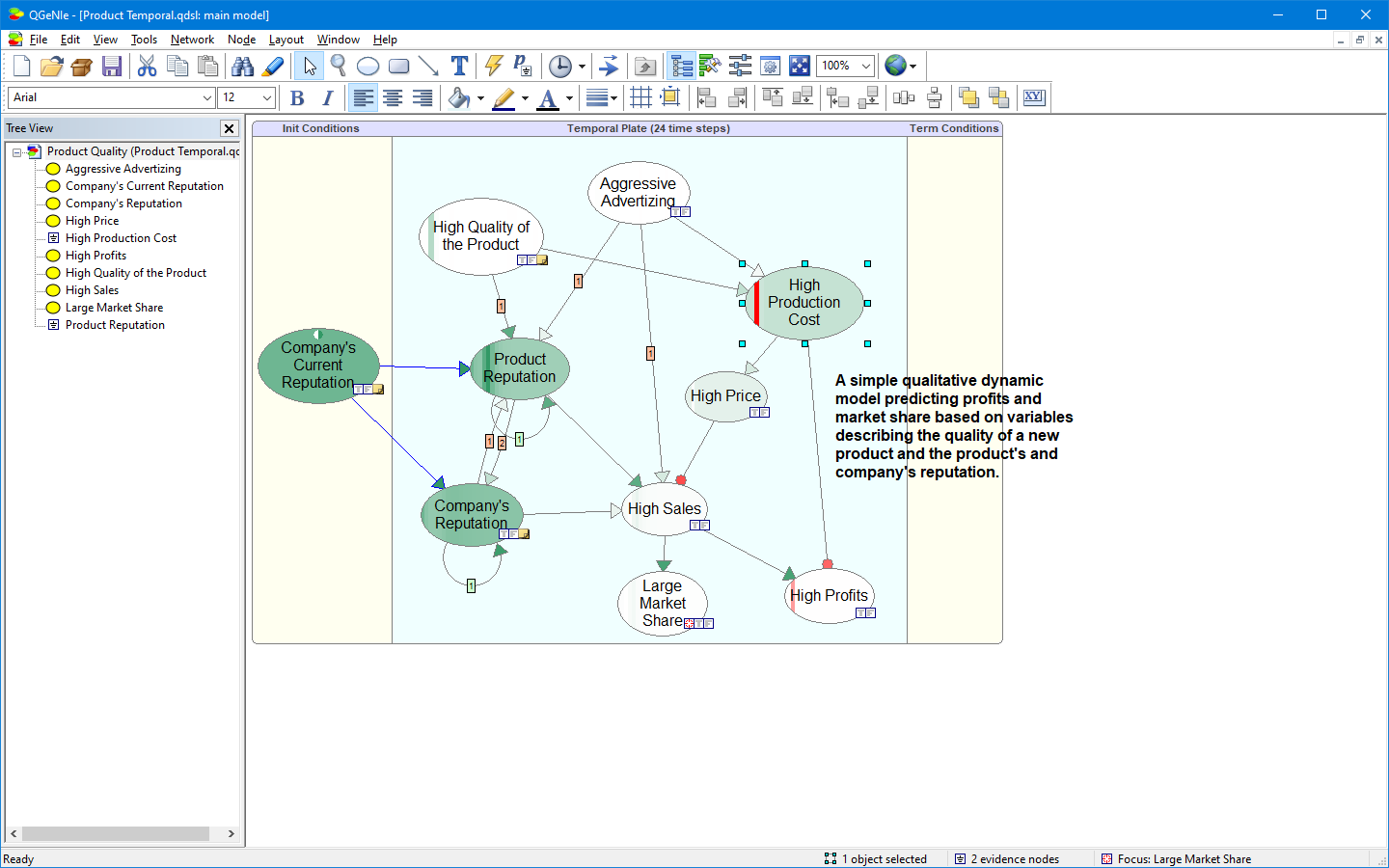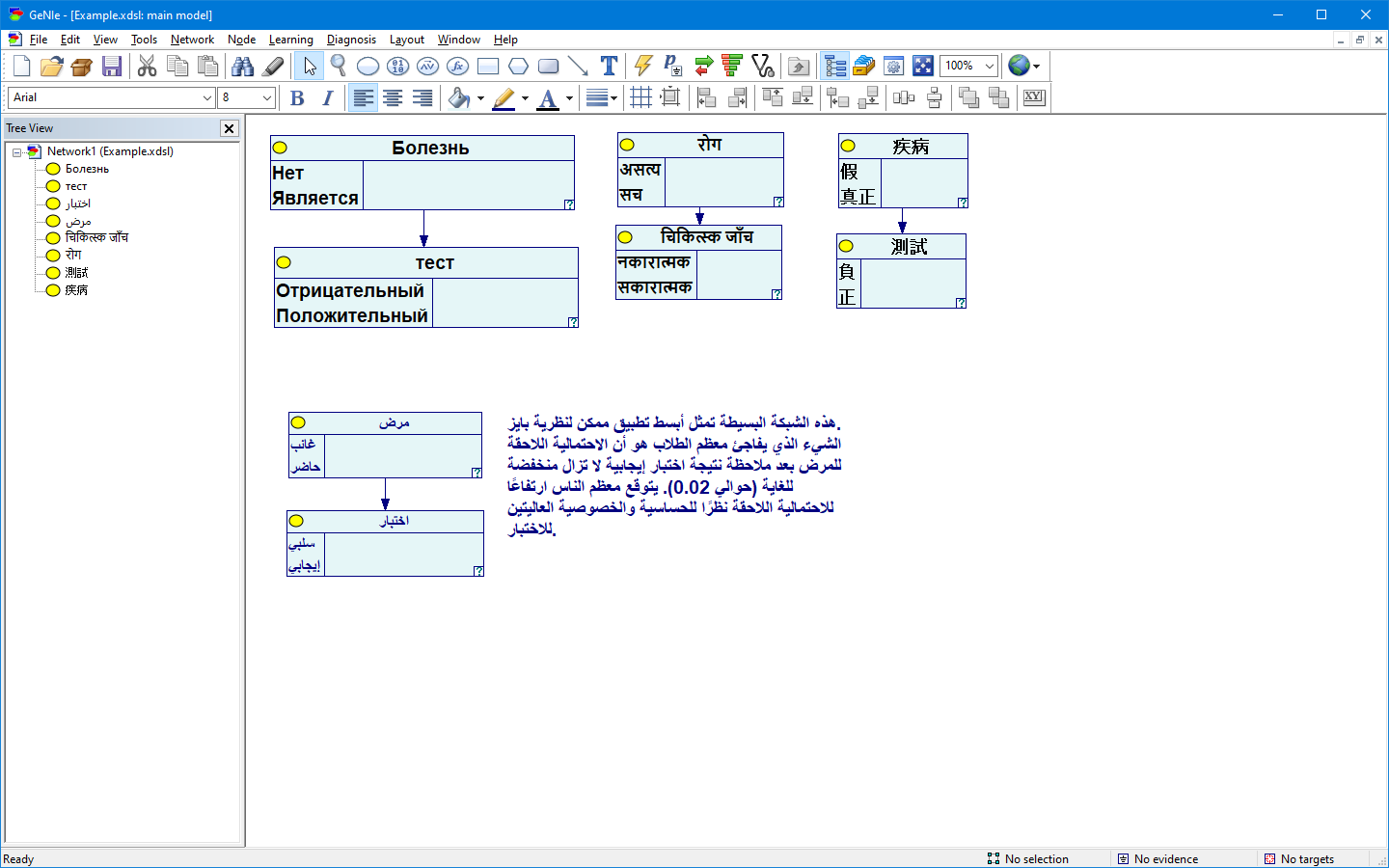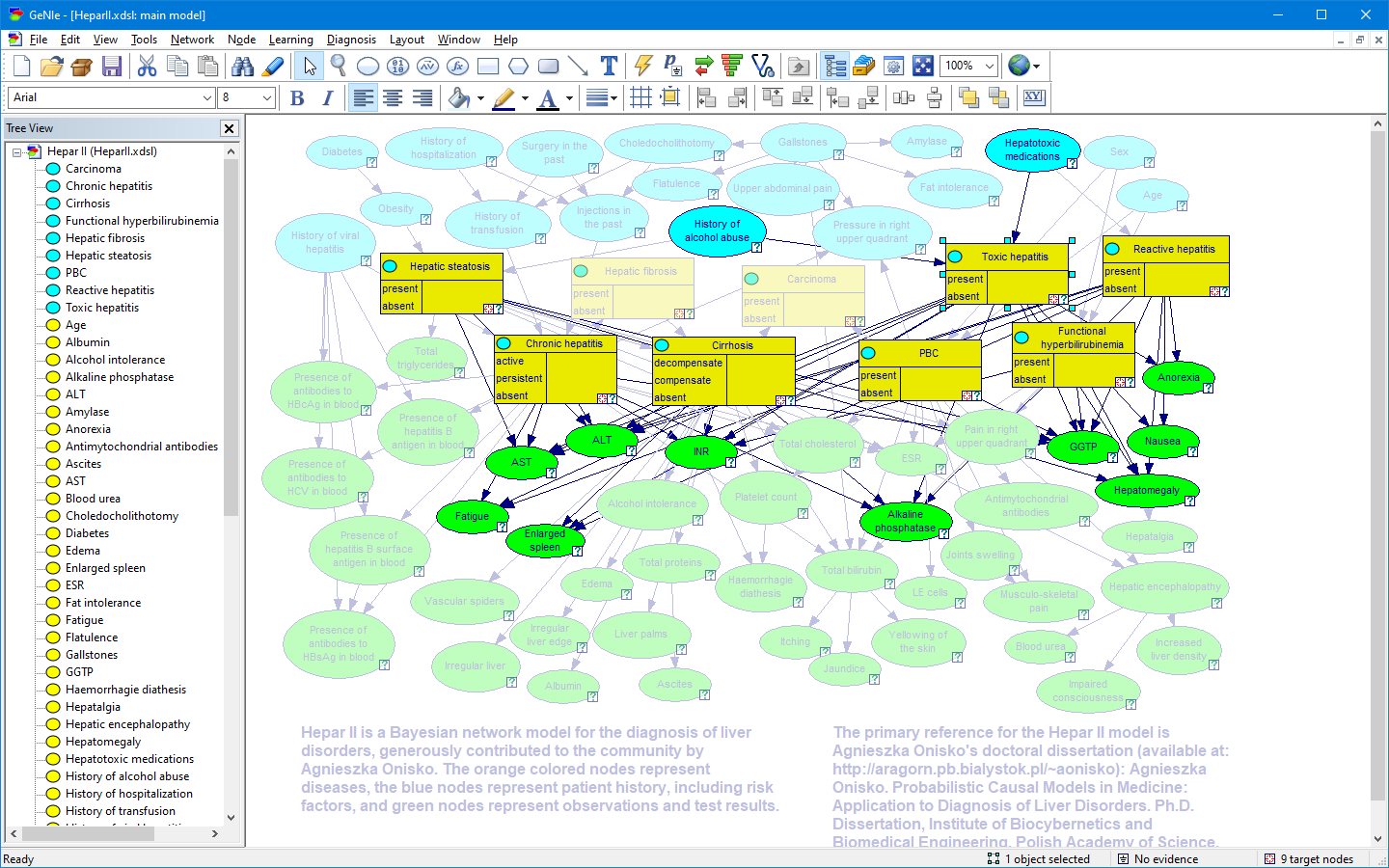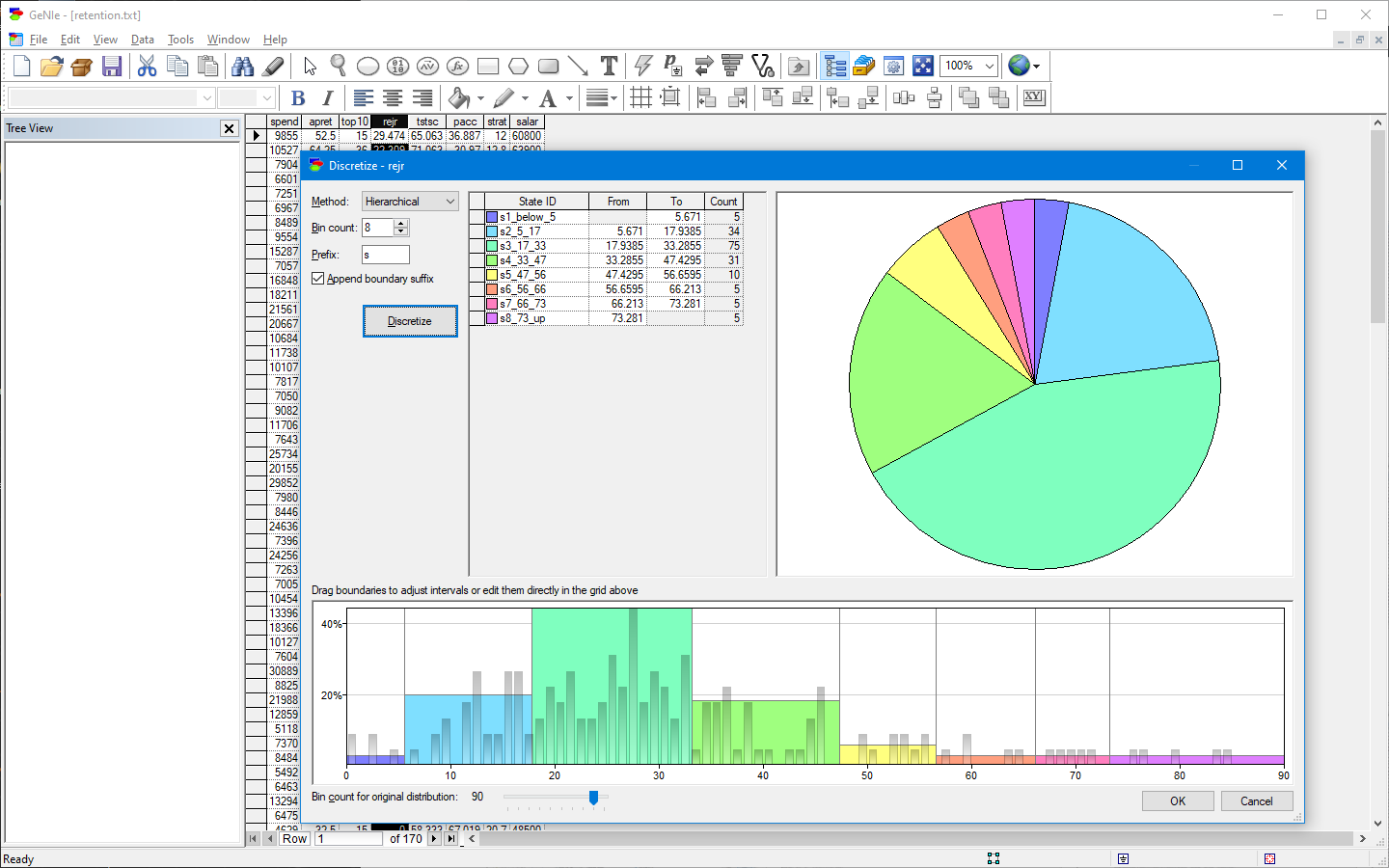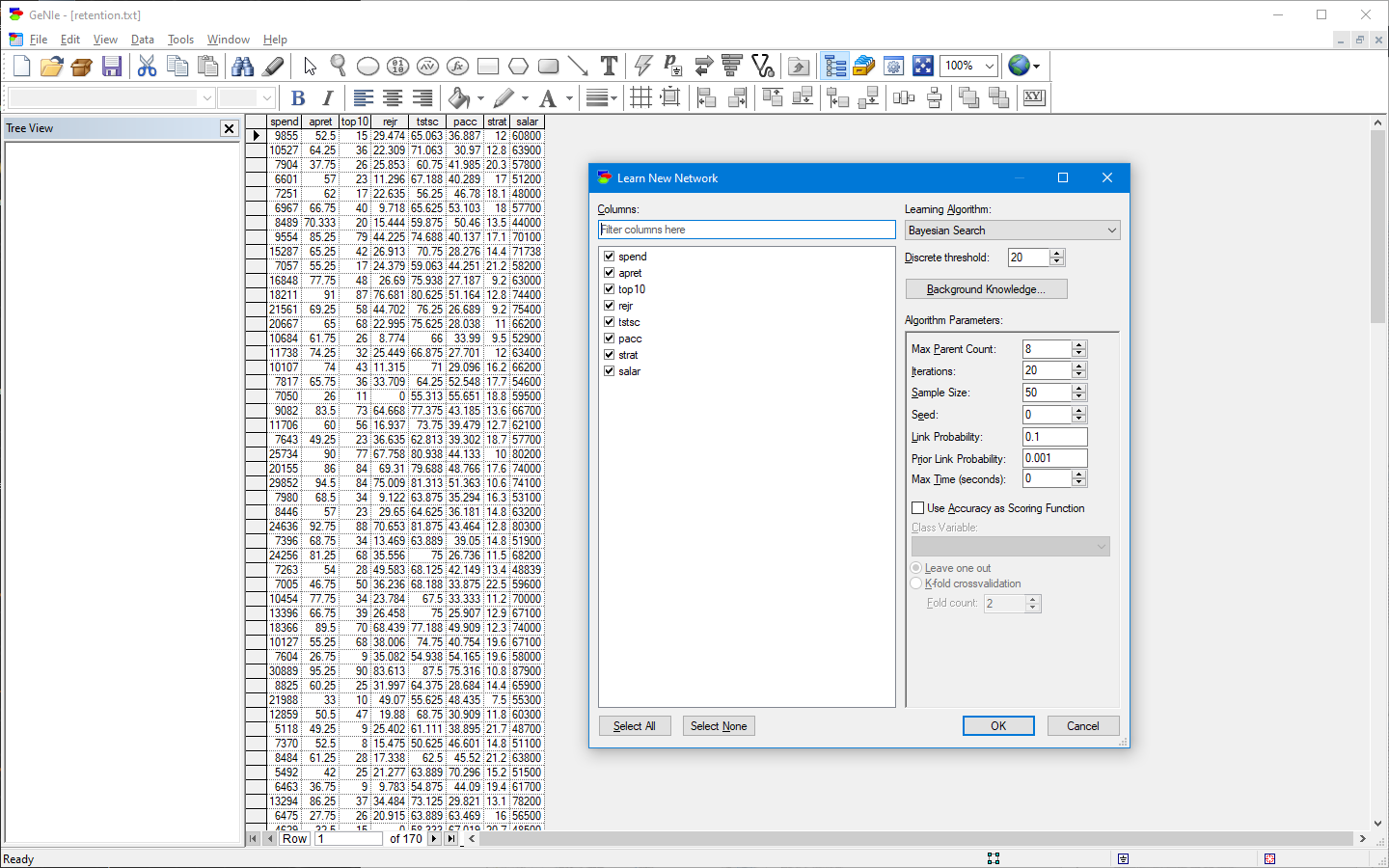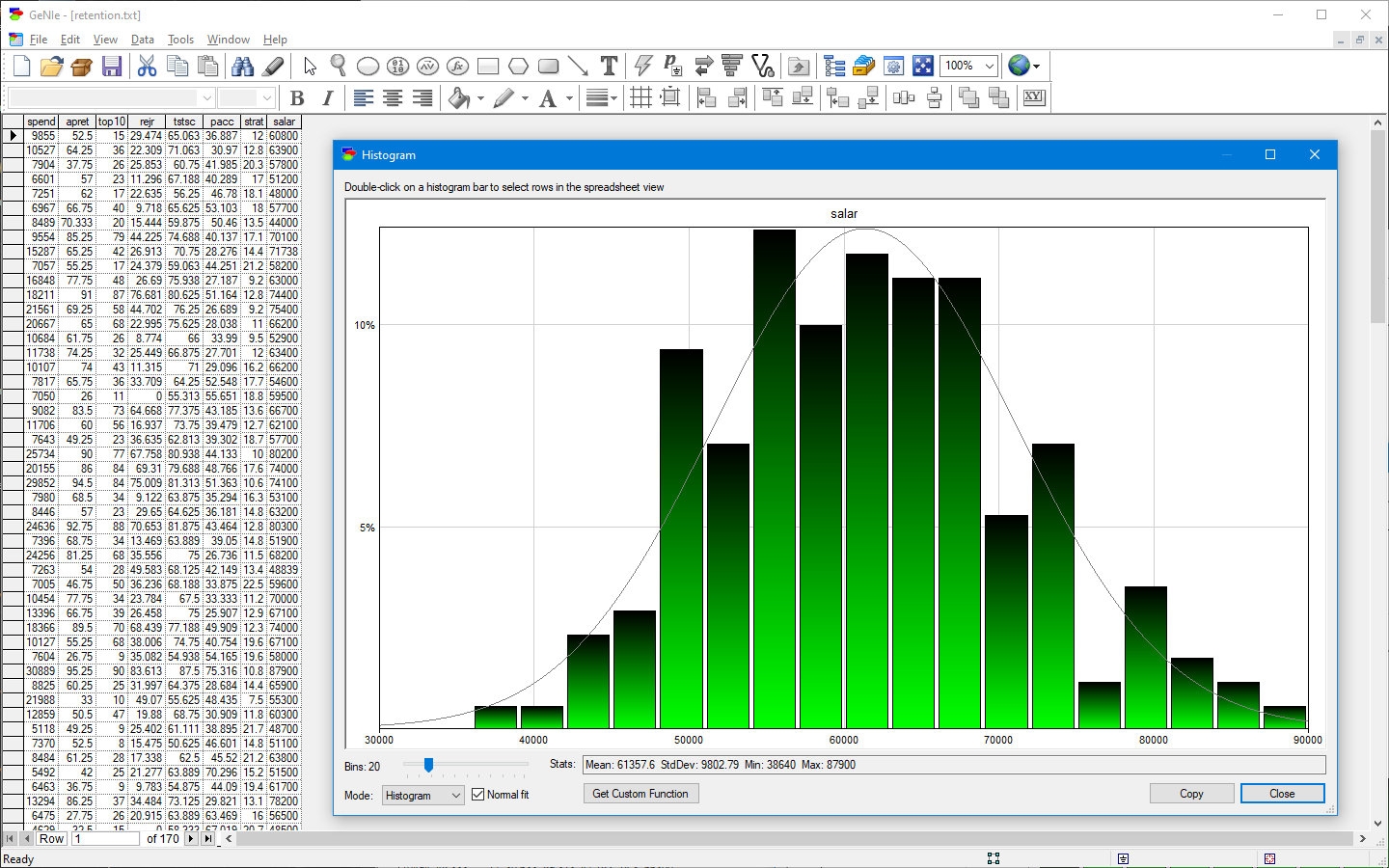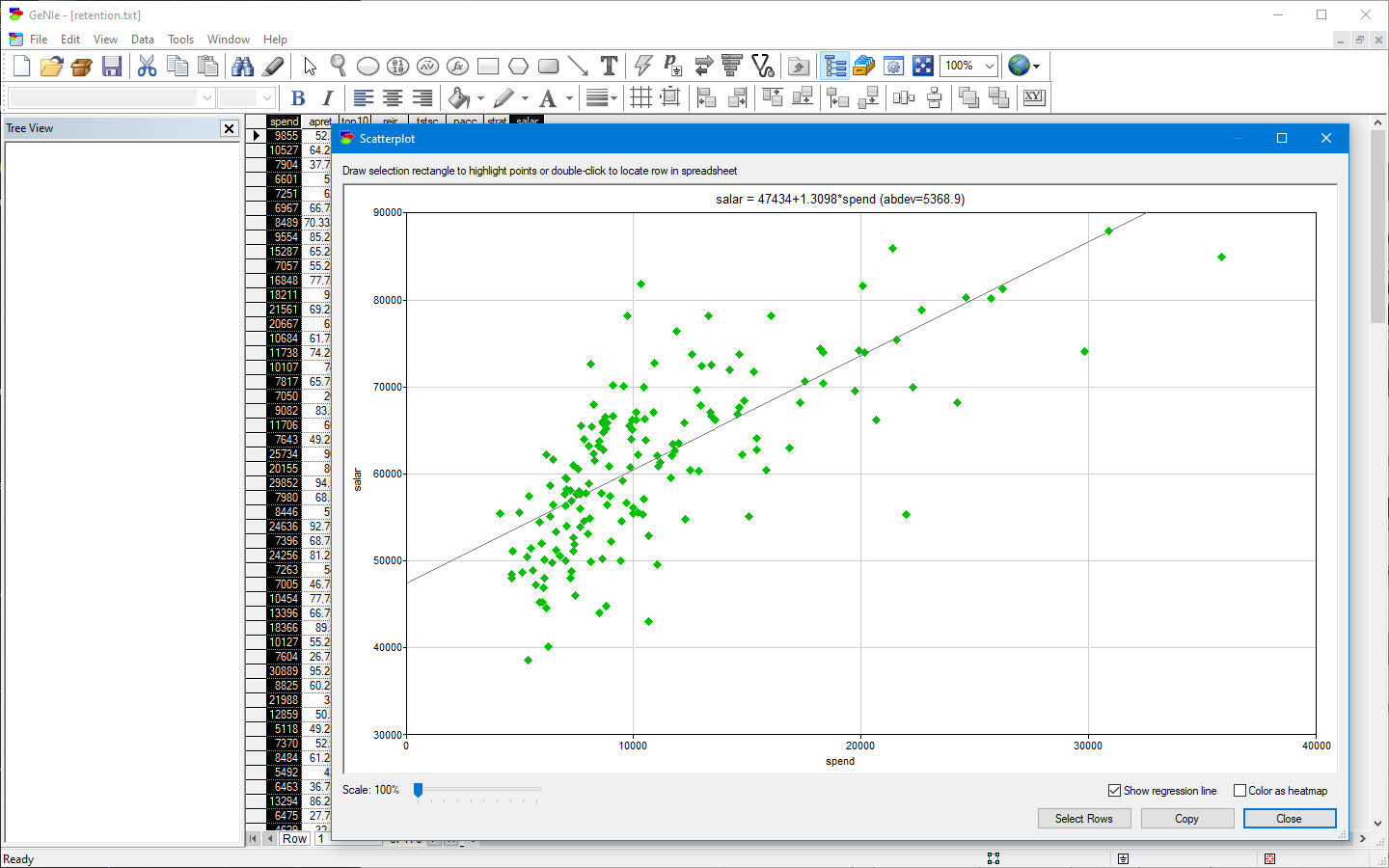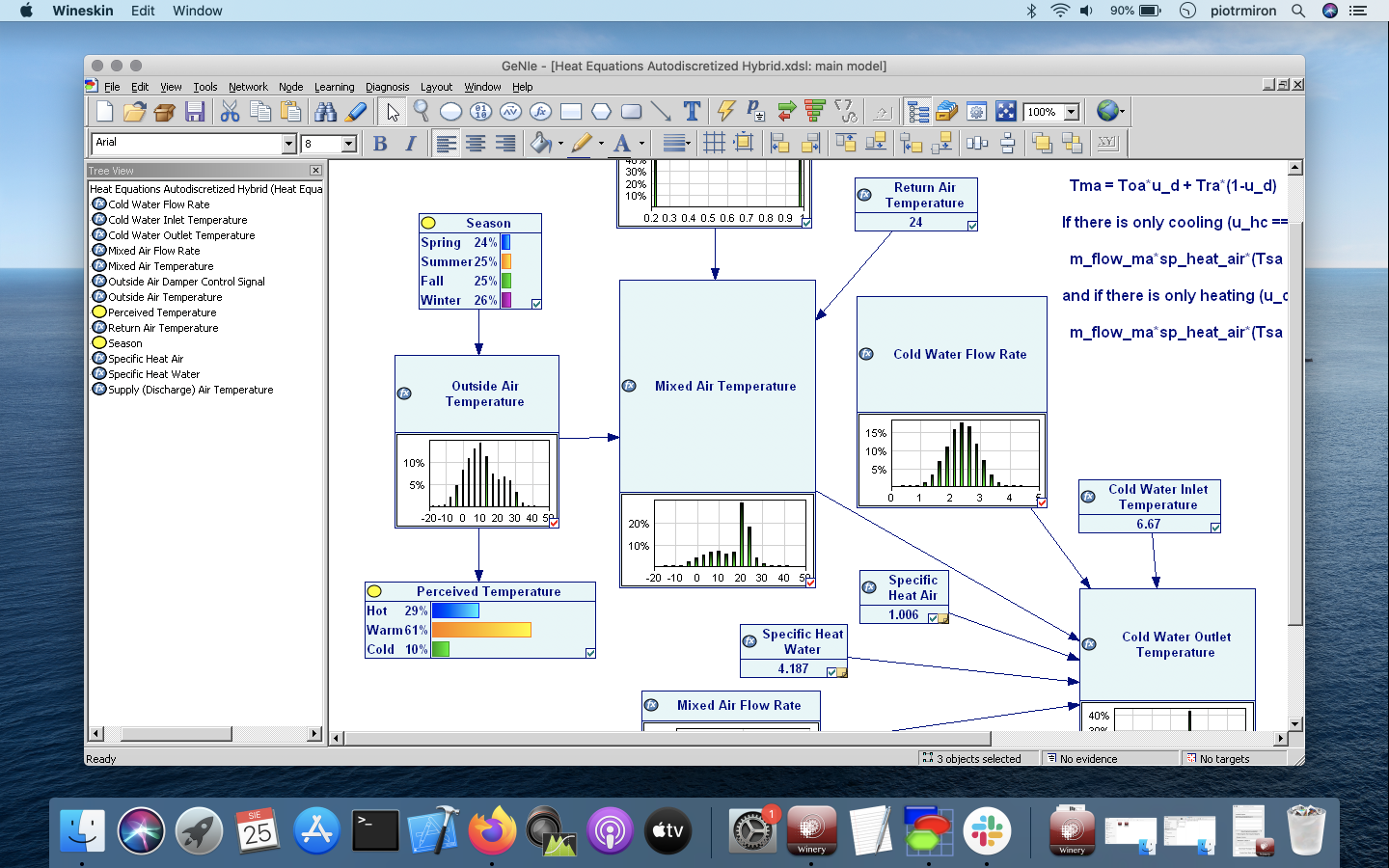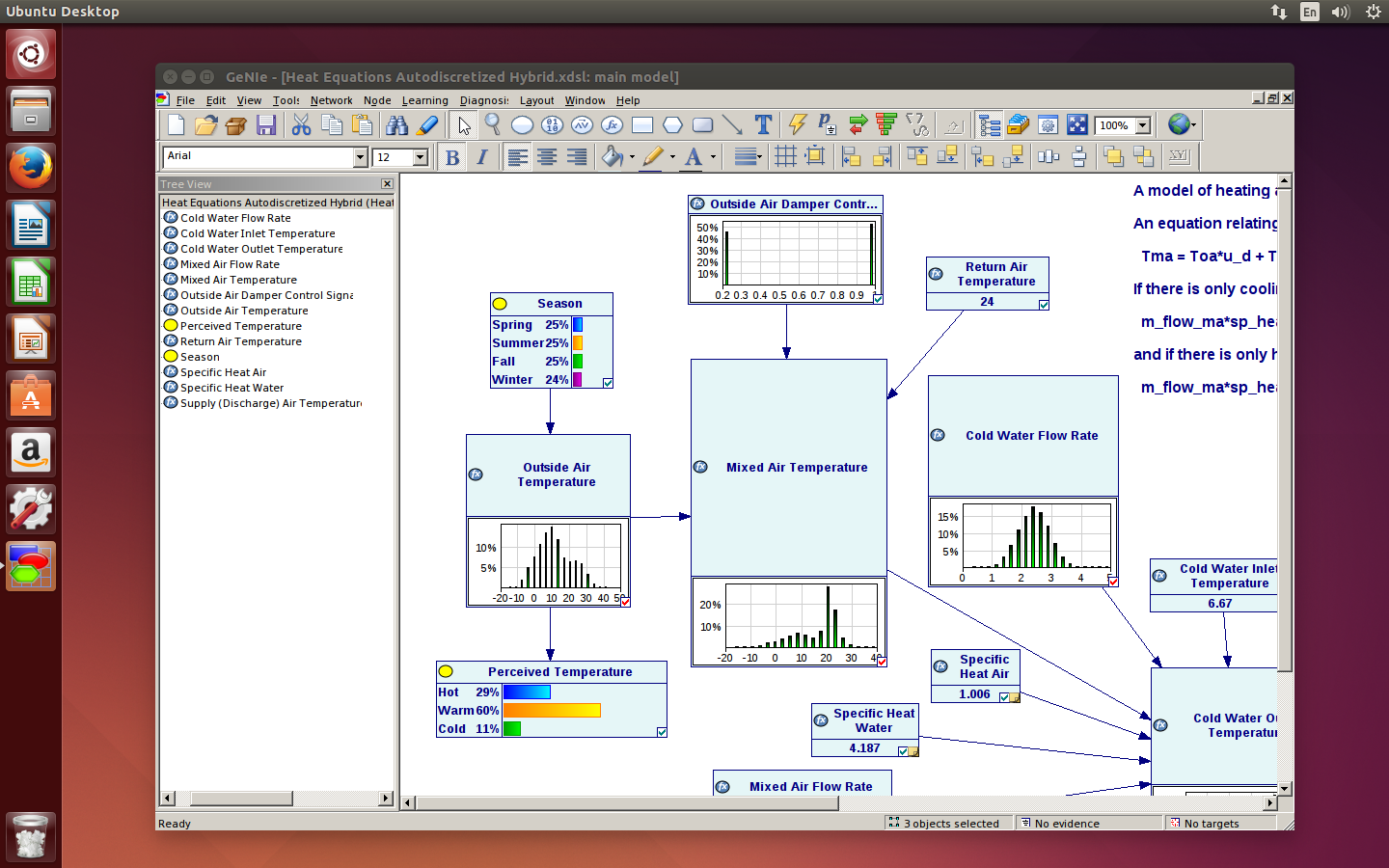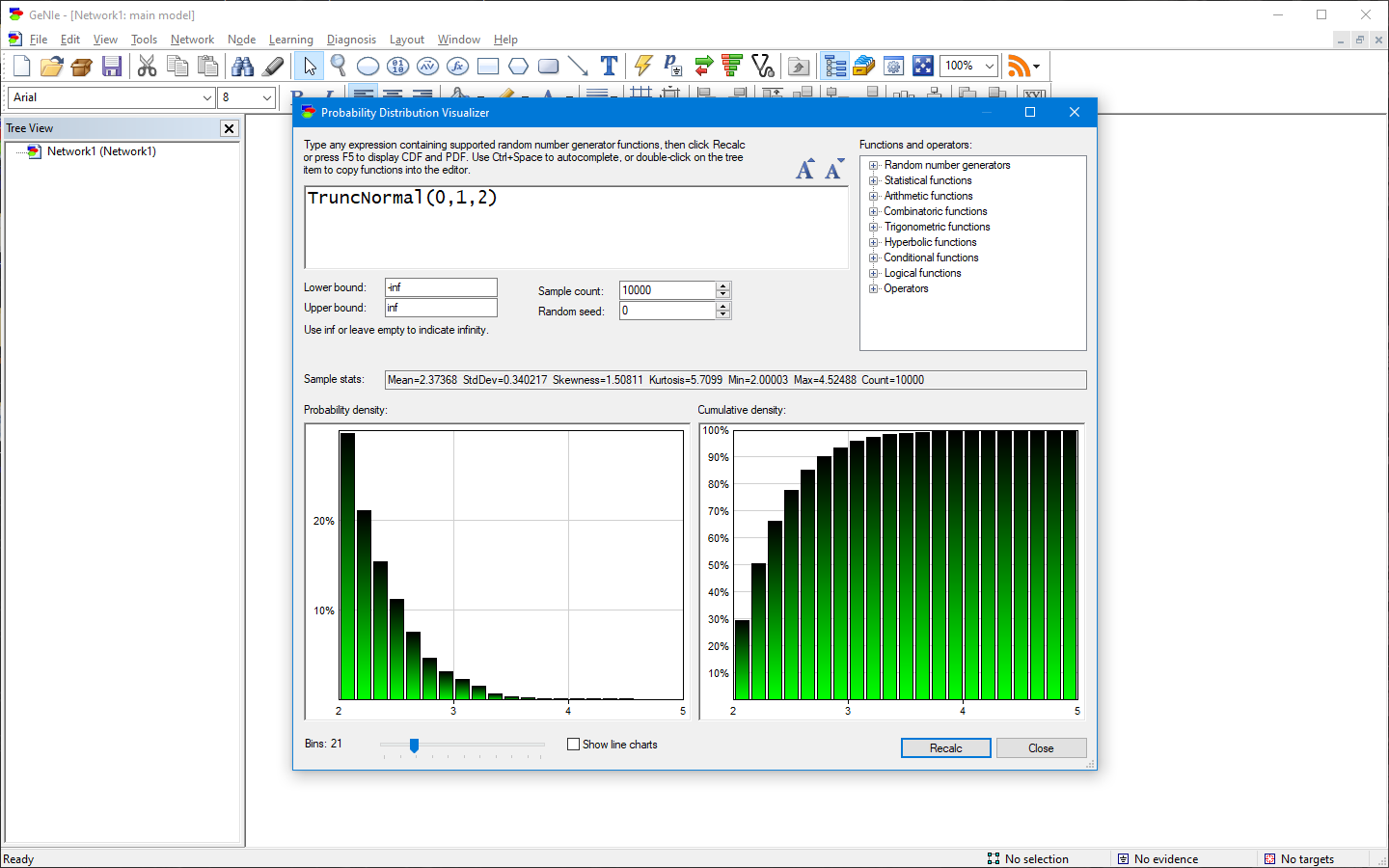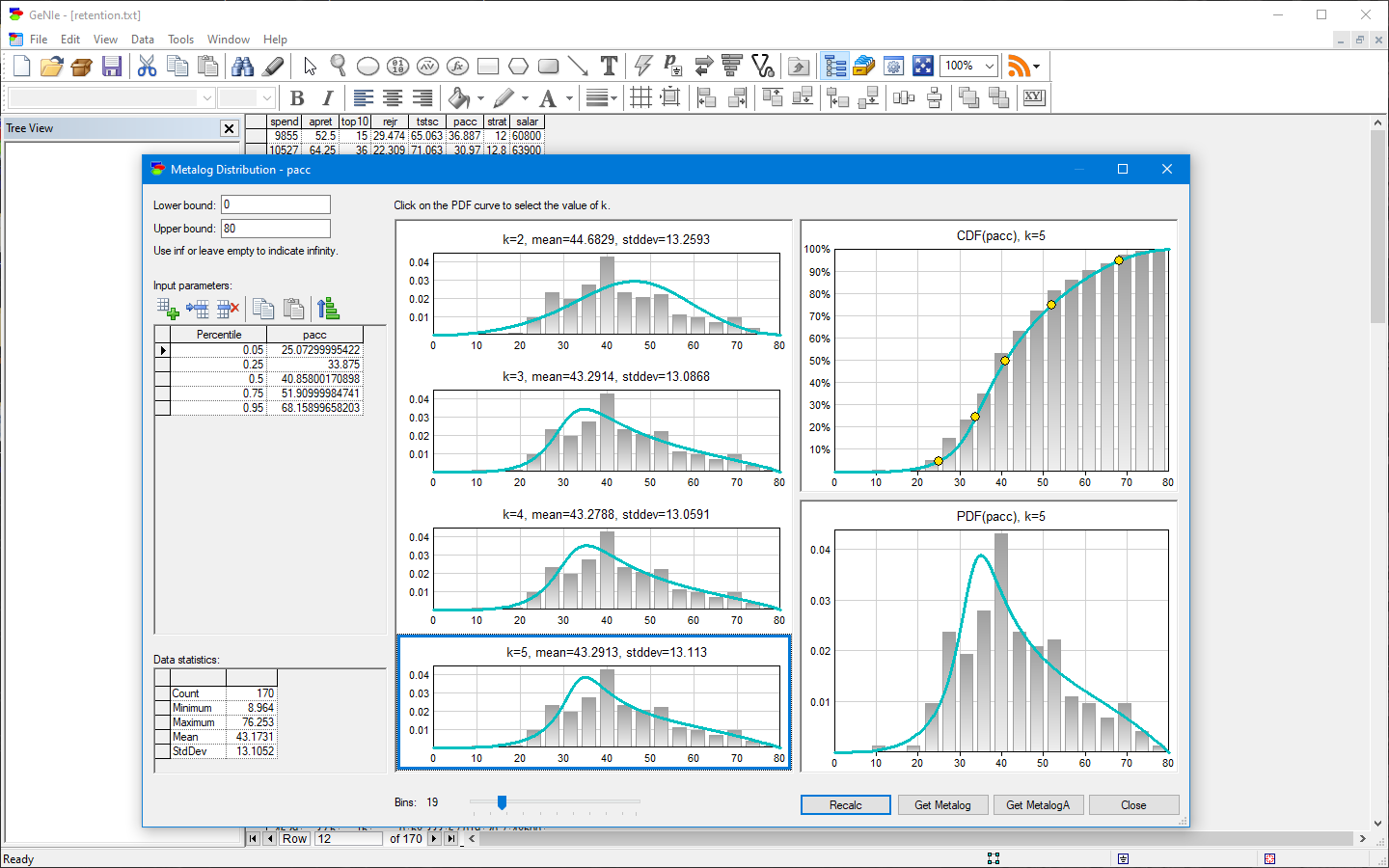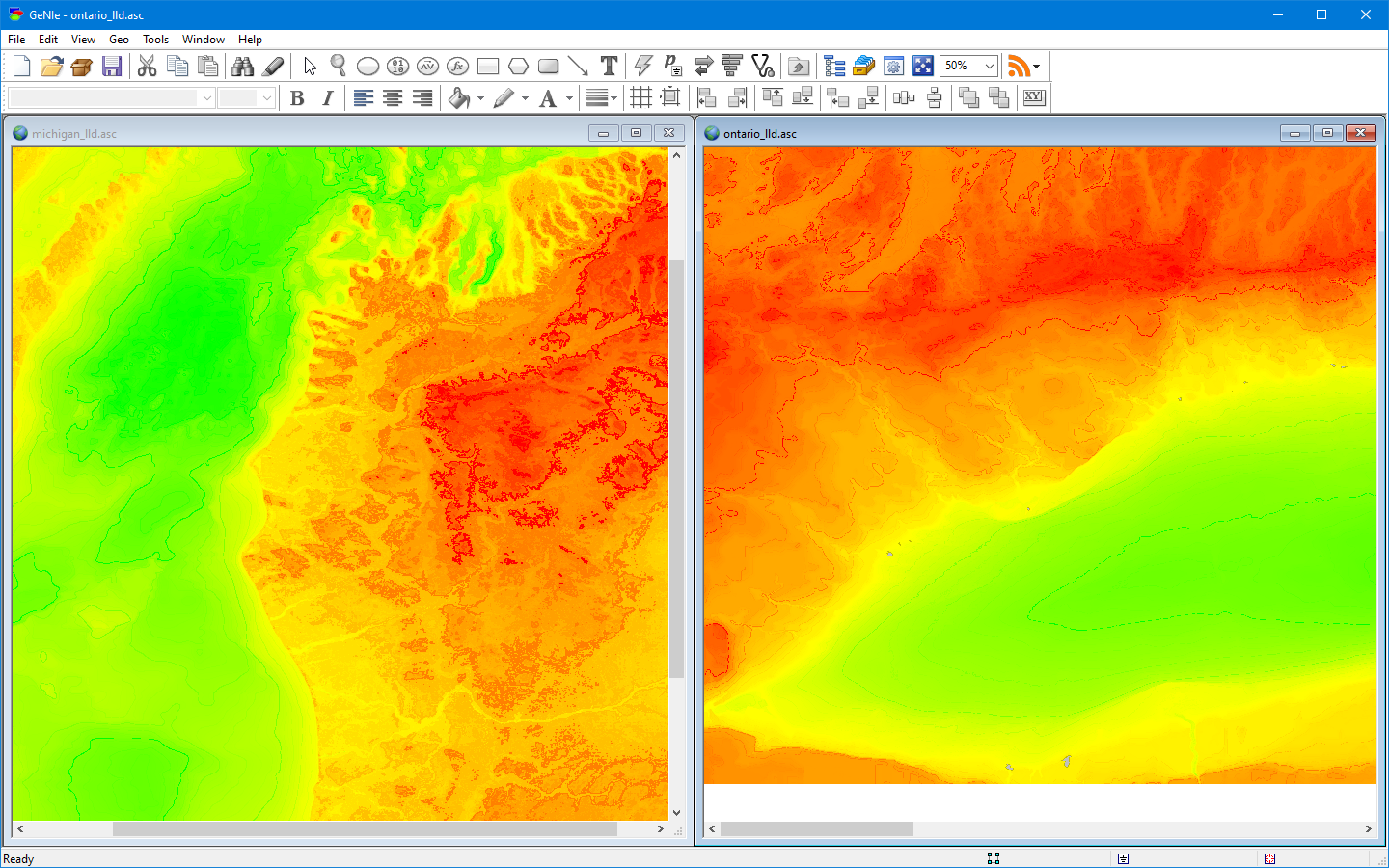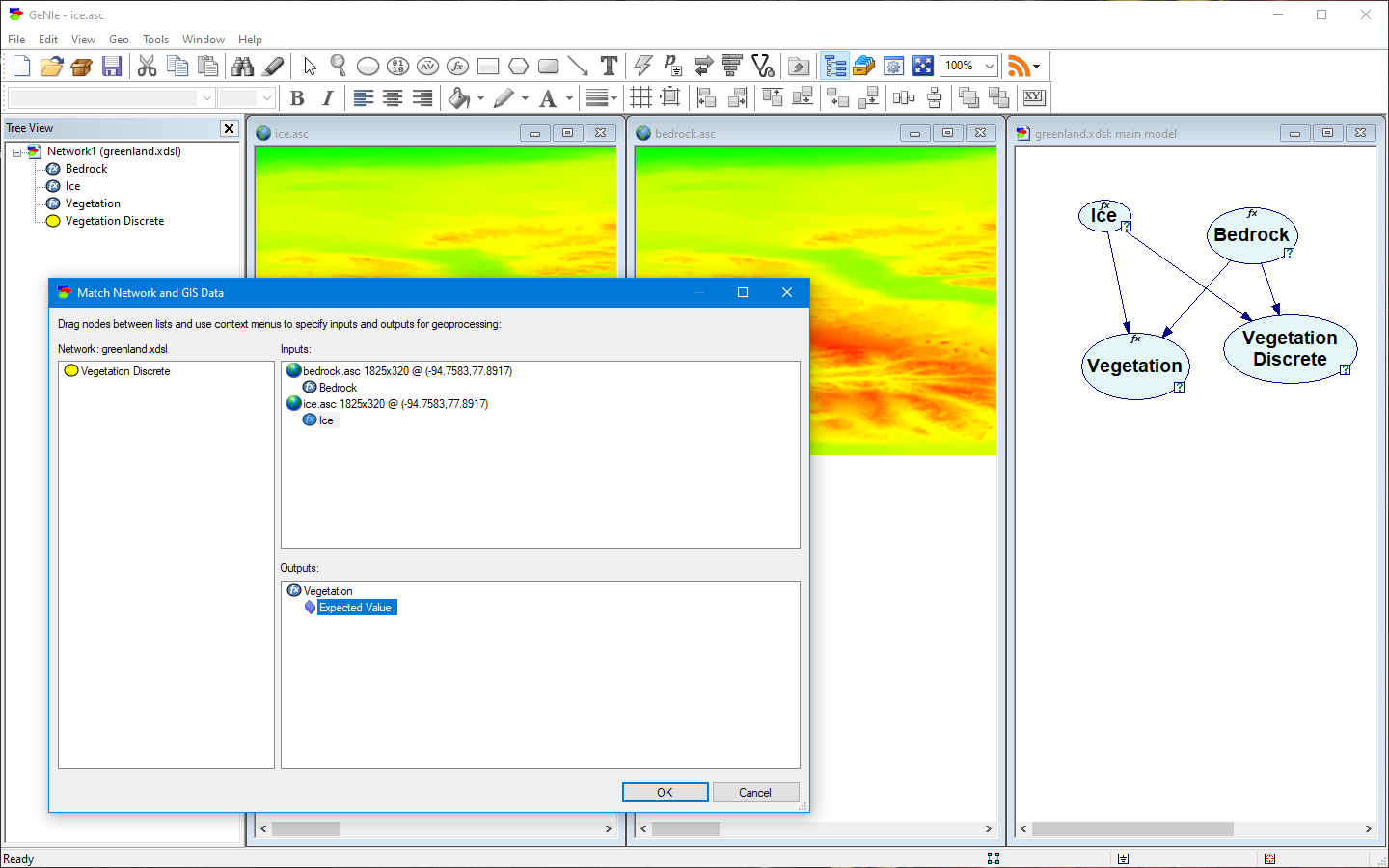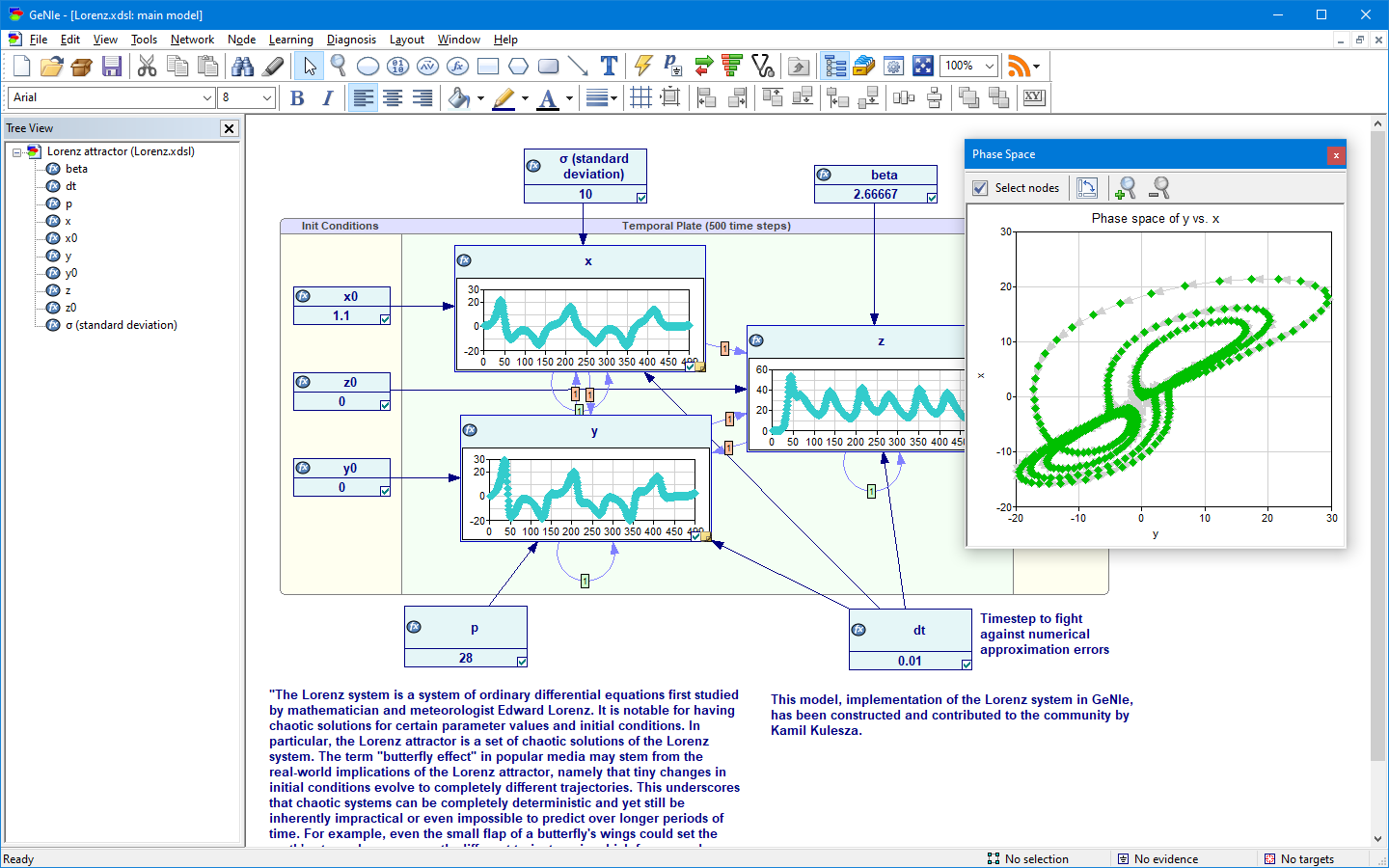GeNIe Modeler: Complete Modeling Freedom
GeNIe Modeler is a graphical user interface (GUI) to SMILE Engine and allows for interactive model building and learning. It is written for the Windows environment but can be also used on macOS and Linux under Wine. It has been thoroughly tested in the field since 1998, has received a wide acceptance within both academia and industry, and has thousands of users world-wide.
An important design criterion for all our products has been from the very start that they should allow for a complete modeling freedom. GeNIe models do not bend reality to available modeling tools. Whatever the domain demands, can be modeled in our software. Because no exact algorithms exist for some type of models, our software is equipped with a suite of approximate stochastic sampling algorithms, capable of solving any models created by the users.
Primary Features
- Graphical editor to create/learn/refine network models.
- Uses the SMILE Engine. You may develop models in GeNIe and create a custom interface for them using SMILE.
- BayesBox and BayesMobile allow for using GeNIe models through any web browser or mobile device.
- Complete integration with MS Excel, cut and paste data into internal spreadsheet view of GeNIe.
- Open multiple networks and cut and paste sections of models between them.
- Flexible data handling, including import from external databases.
- Includes structure and parameter learning algorithms.
- Chance nodes with general, Noisy MAX and Noisy Adder distributions.
- Discrete nodes can be defined over numeric intervals, or have their outcomes associated with numeric point values.
- Equation nodes and continuous probability distributions in continuous, hybrid and dynamic models.
- Metalog distribution available in node equations. Metalog parameters can be fitted interactively to data.
- Probability distribution visualizer.
- Custom functions can be defined at network level and used in node equations.
- Influence diagrams with decision, utility and multi-attribute utility (MAU) nodes with arbitrary MAU functions.
- Dynamic Bayesian networks of any order, support for discrete and continuous temporal nodes.
- QGeNIe has a simplified qualitative interface with DeMorgan nodes
- Powerful diagnostic functionality, including value of information calculation that rank-orders possible diagnostic tests and questions.
- Saving and retrieving multiple evidence sets with case manager window
- Full Unicode support
- GIS raster format supported, GIS data can be used as inputs to batch processing.
- Cross compatibility with other software. Supports all major Bayesian network file types (e.g., Hugin, Netica, Ergo).
For more details, please see GeNIe documentation: HTML, PDF.
Screenshots
Below you can see various GeNIe interface elements.

